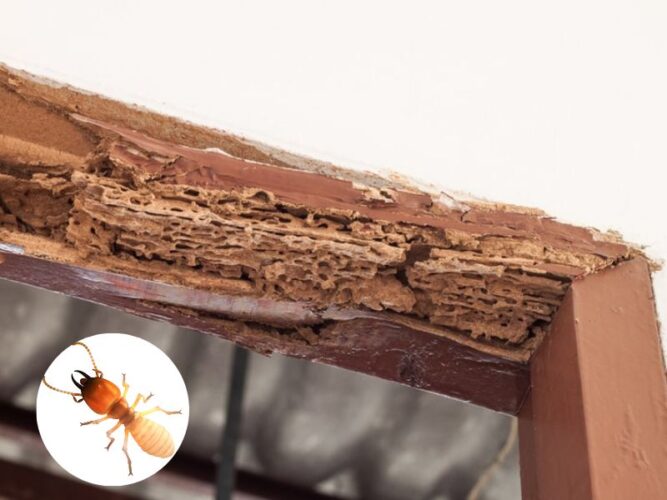Costly repairs and structural instability can result from termite damage to buildings. To prevent damage to your home and prolong its useful life, use construction materials that are resistant to termites. To help you avoid a termite infestation, this article will go through some guidelines for choosing materials.
Termite Behavior and Preferences
Before diving into the selection process, it is essential to familiarize yourself with termite behavior and preferences. Termites are attracted to cellulose, a component found in wood and other organic materials.
They thrive in environments with moisture, warmth, and darkness. By understanding these factors, you can make informed decisions when choosing materials that are less appealing to termites.
Opt for Alternative Building Materials
Traditional wood-based materials are highly susceptible to termite attacks. However, there are various alternative building materials available that offer termite resistance. Some of these materials include:
a) Concrete: Due to its composition and solidity, concrete is an ideal material for resisting termites. Concrete is an excellent material since termites cannot eat it and hence cannot damage it.
b) Steel: Like concrete, steel offers structural stability and protects against termite damage. Avoiding rust, which may damage steel, requires careful installation and upkeep.
c) Composites: Fiber cement and plastic composites are two examples of composites that are gaining in popularity because of their resistance to termites. These materials offer longevity and resistance against termite infestation thanks to a blend of natural fibers and synthetic components.
d) Pressure-Treated or Naturally Resistant Woods: If you like the appearance of wood, pressure-treated or naturally resistant woods like cedar or redwood are good options. These timbers can either be chemically treated to increase their resistance to termites or contain naturally occurring substances that do so.
Evaluate Material Durability and Longevity
Apart from termite resistance, it is important to consider the durability and longevity of the chosen materials. Building materials should withstand environmental conditions and remain in good condition for an extended period.
Research the performance history of the materials you are considering and check for warranties or guarantees provided by manufacturers.
Consult with Pest Control Experts
Seeking advice from pest control experts or professionals who specialize in termite prevention can be invaluable. They can assess your specific location, climate, and building requirements to provide tailored recommendations for termite-resistant materials.
Their expertise can help you make informed decisions and identify potential weak points that may require additional protection.
Implement Proper Construction Techniques
Even with the most termite-resistant materials, it is crucial to implement proper construction techniques to minimize the risk of termite infestation. Some key considerations include:
a) Proper Site Preparation: Ensure that the construction site is properly prepared, removing any existing termite colonies and implementing measures to deter future infestations.
b) Effective Moisture Management: Termites thrive in moist environments, so it is essential to control moisture levels during construction and afterward. Implement proper drainage systems, seal cracks and crevices, and ensure proper ventilation to reduce the likelihood of termite attraction.
c) Physical Barriers: Incorporate physical barriers, such as stainless steel mesh or termite shields, to prevent termites from accessing vulnerable areas, such as foundation walls or crawl spaces.
d) Regular Inspections and Maintenance: Even with termite-resistant materials, regular inspections, and maintenance are crucial to detect any signs of termite activity or potential vulnerabilities. Timely action can prevent significant damage and minimize repair costs.
By considering these factors and following the appropriate subheadings, you can make informed decisions when choosing termite-resistant building materials. Protecting your property from termite infestation not only ensures its longevity but also provides peace of mind knowing that your investment is safeguarded against potential damage.

